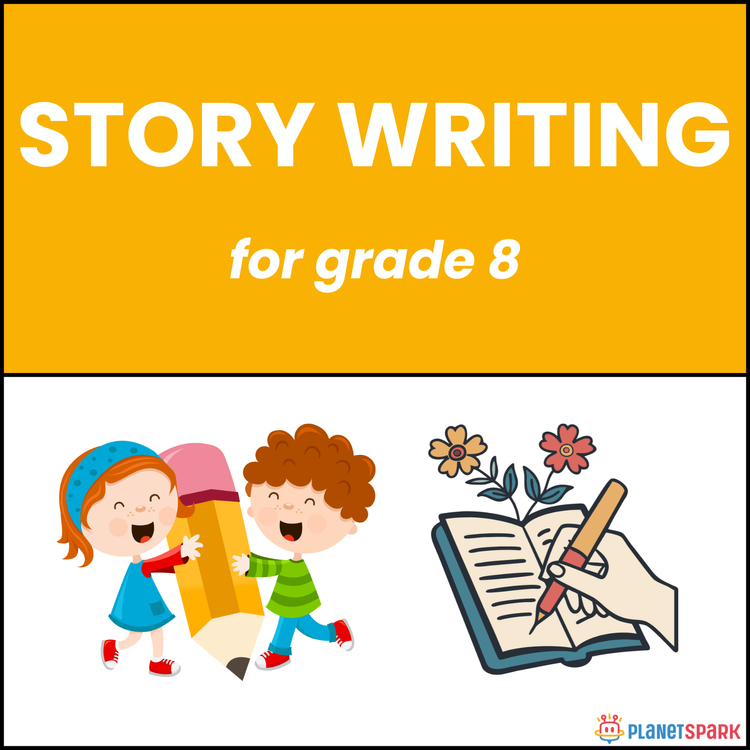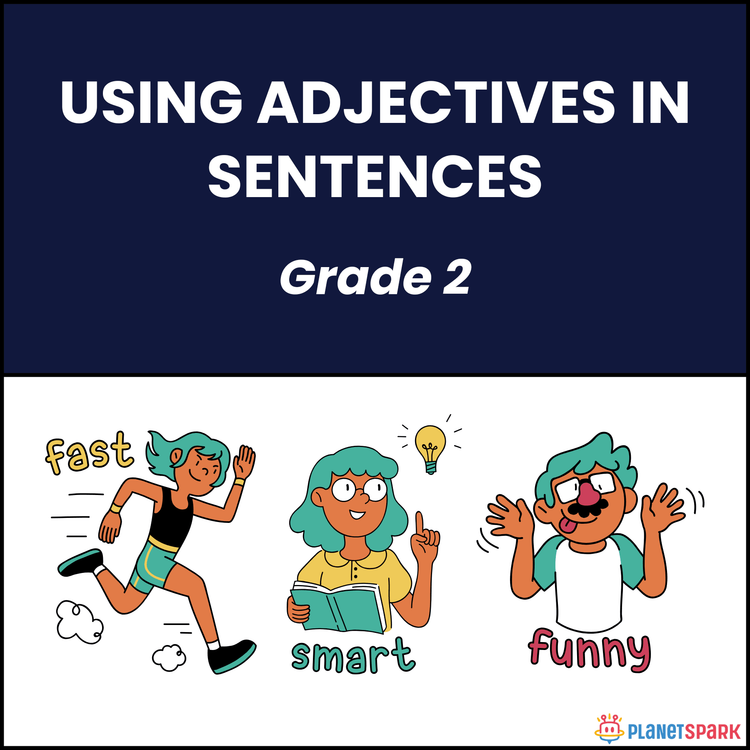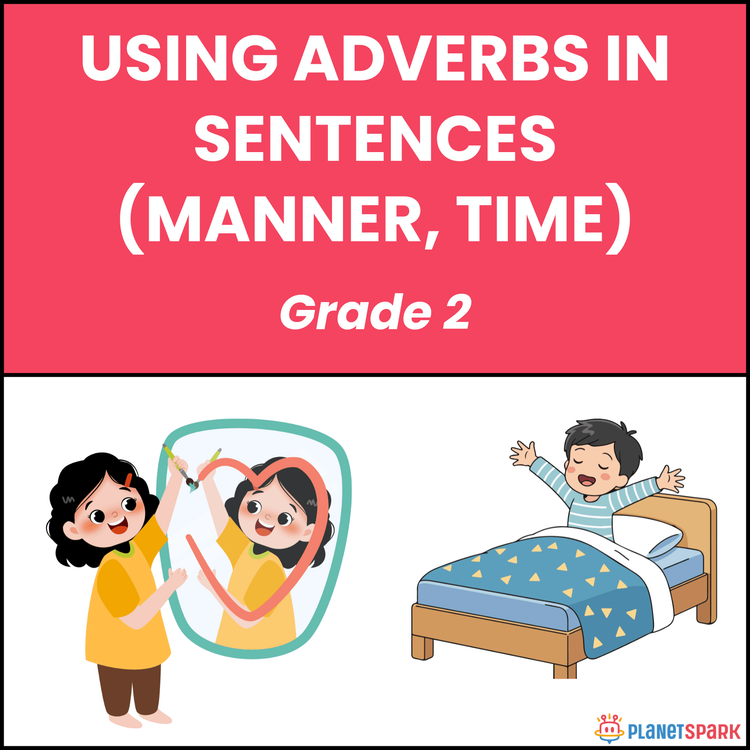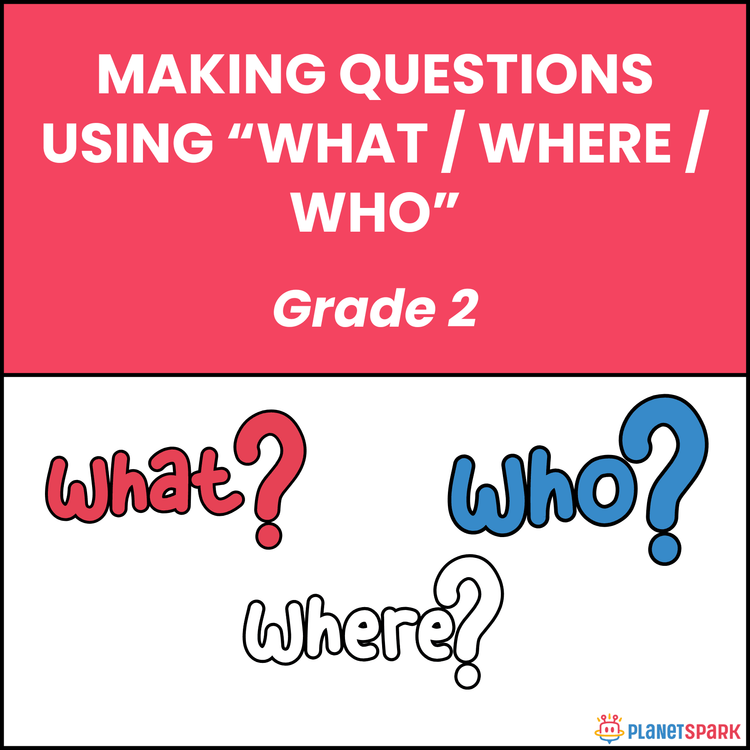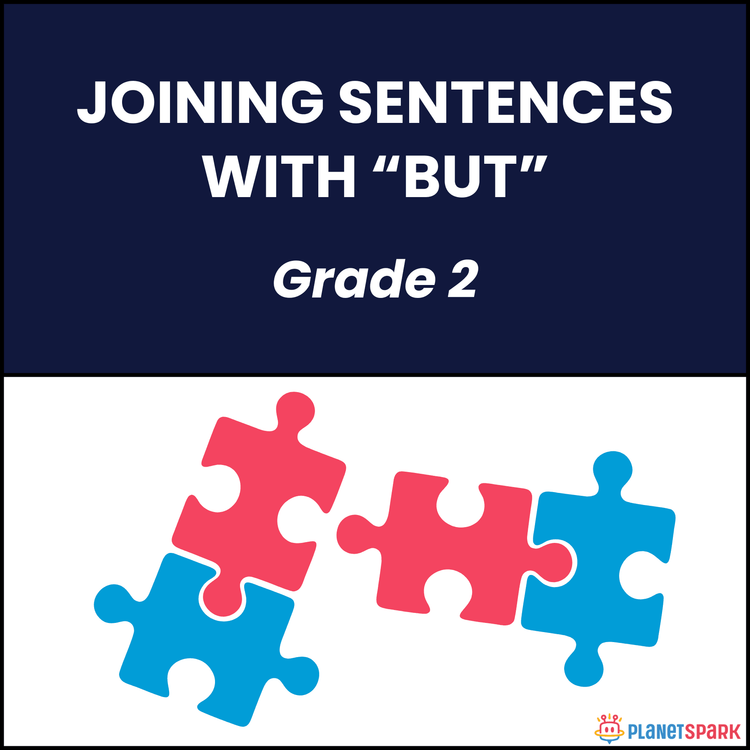Class 8 Direct and Indirect Speech Worksheet
Class 8EnglishEnglish GrammarFree DownloadPDF
Tanishka SharmaVisit Profile
I’m a passionate and fun-loving educator with 5 years of teaching experience, including the last 2 years at PlanetSpark. Along with my teaching journey, I also bring 2 years of corporate experience, which helps me connect practical communication skills with real-world applications. I love helping students build confidence, improve their communication, and grow into their best selves.
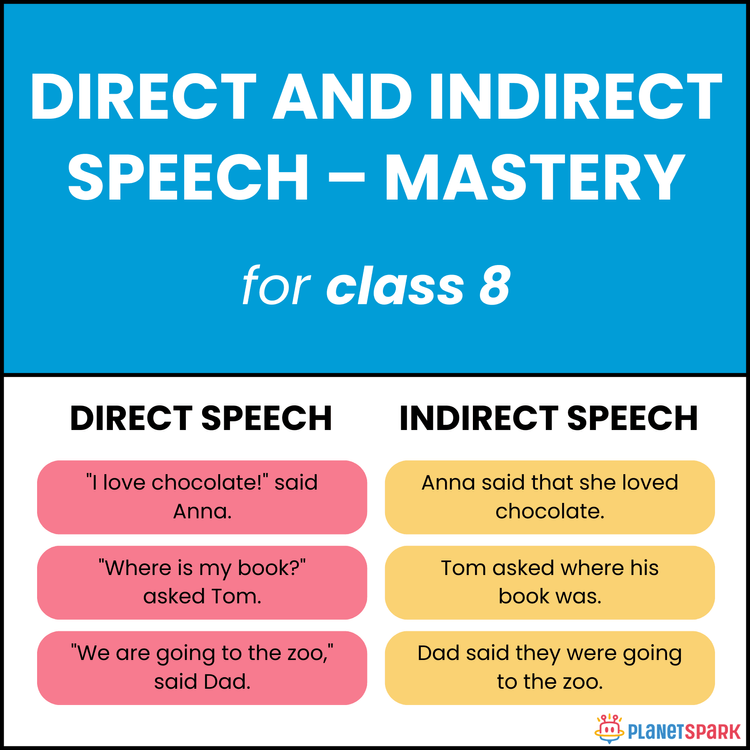

Class 8 Direct and Indirect Speech Worksheet
Class 8EnglishEnglish GrammarFree DownloadPDF
Tanishka SharmaVisit Profile
I’m a passionate and fun-loving educator with 5 years of teaching experience, including the last 2 years at PlanetSpark. Along with my teaching journey, I also bring 2 years of corporate experience, which helps me connect practical communication skills with real-world applications. I love helping students build confidence, improve their communication, and grow into their best selves.
Report with Confidence: Direct and Indirect Speech for Class 8
This Class 8 worksheet builds strong grammar foundations by teaching learners how to transform direct speech into indirect speech and vice versa. With activities like matching, multiple choice, rewriting, error correction, and sentence writing, students gain accuracy and fluency in reporting speech clearly.
Why Direct and Indirect Speech Matters in Grammar?
This worksheet helps learners:
1. Master tense, pronoun, and time word changes while converting sentences.
2. Differentiate between direct quotes and reported statements.
3. Practice editing and correcting errors in indirect speech.
4. Build confidence in narrating conversations in both spoken and written English.
What’s Inside This Worksheet?
This worksheet includes five comprehensive exercises:
Exercise 1 – Match the Sentences
Students match direct sentences with their correct indirect forms, e.g., *“I can solve this puzzle,” said Nisha* → *Nisha said she could solve that puzzle*
Exercise 2 – Multiple Choice Questions
Learners choose the correct indirect speech for a given direct sentence, e.g., *She said, “I had cooked dinner”* → *She said that she had cooked dinner*
Exercise 3 – Direct to Indirect Conversion
Students rewrite direct sentences into indirect, e.g., *“I have been waiting here for an hour,” said Rahul* → *Rahul said that he had been waiting there for an hour*.
Exercise 4 – Indirect to Direct Conversion
Students convert indirect statements back to direct, e.g., *Ravi said that he had finished his homework* → *“I had finished my homework,” said Ravi*.
Exercise 5 – Sentence Writing
Students write five original direct sentences and carefully change each into indirect.
✅ Answer Key (For Parents & Educators)
Exercise 1 – Match the Following
1-c. Rohan said he had been reading when I arrived.
2-e. Nisha said she could solve that puzzle.
3-a. Arun said they had met before the event.
4-g. Meena said they had never tried sushi.
5-d. Kabir said they would have finished by then.
6-f. Ravi said he had been being watched.
7-b. Ananya said she had been working on a novel.
Exercise 2 – MCQs
1-a. She said that she had cooked dinner.
2-b. He said that he would call me that night.
3-c. They said that they were watching a film.
4-b. She asked if I knew French.
5-c. He said that he could finish that work.
6-b. She said that she had been studying all night.
7-a. They said that they would meet again.
8-b. He said that he had never seen that before.
Exercise 3 – Direct → Indirect
1. Rahul said that he had been waiting there for an hour.
2. He said that he had never met him before.
3. The manager said that she would finish the report by the next day.
4. The students said that they had been studying all night.
5. Arjun said that he could complete that task alone.
6. Nisha said that they had met him before the event.
7. Ankit said that he would be leaving for Delhi the next week.
8. The scientists said that they would have solved the problem by then.
9. The woman said that she had been being followed the previous day.
10. The tourists said that they had never seen such a view before.
Exercise 4 – Indirect → Direct
1. “I had finished my homework,” said Ravi.
2. She said, “I will travel tomorrow.”
3. They said, “We are studying.”
4. Father said, “I had cooked dinner.”
5. Mother said, “I am watering the plants.”
6. He said, “I can solve the puzzle.”
7. Grandpa said, “I had told them a story.”
8. The coach said, “We will win.”
9. She said, “I had seen the rainbow.”
10. She said, “I have already completed the assignment.”
Exercise 5 – Sample Sentences (Answers may vary)
Direct: “I love reading novels,” said Ritu. → Indirect: Ritu said that she loved reading novels.
Direct: “We are playing football,” said the boys. → Indirect: The boys said that they were playing football.
Direct: “I will write a letter tomorrow,” said Meena. → Indirect: Meena said that she would write a letter the next day.
Direct: “She has painted a picture,” said Raj. → Indirect: Raj said that she had painted a picture.
Direct: “I can solve this problem,” said Arun. → Indirect: Arun said that he could solve that problem.
Master reported speech with confidence — perfect for Class 8 learners aiming for error-free communication!
🔖Book a free trial!
Frequently Asked Questions
It requires accurate tense shifts, pronoun adjustments, and changes to time expressions.
Because it involves complex sentences, reported questions, and commands.
By practicing with dialogues, narrative writing, and exam-style questions.


